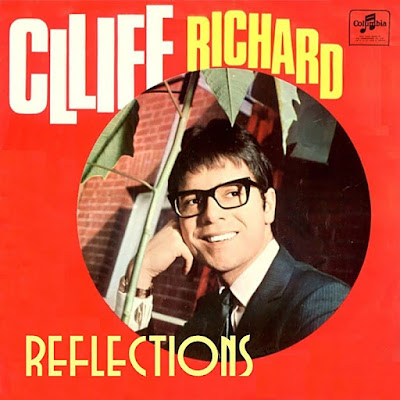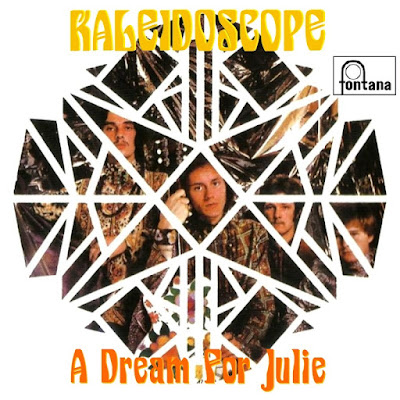In 1969 violinist Darryl Way and keyboardists Francis Monkman formed Sisyphus, along with pianist Nick Simon, bassist Rob Martin and drummer Florian Pilkington-Miksa, and one early gig was to provide accompaniment for Galt McDermott's new play, 'Who The Murderer Was', at the Mercury Theatre in Notting Hill Gate. Mark Hanau, an aspiring band manager at the time, saw the show and decided he wanted to manage the group, installing aspiring folk singer Sonja Kristina as the vocalist, and changing their name to Curved Air, in a tribute to Terry Riley's classic album 'A Rainbow In Curved Air'. After a series of intensive rehearsals in Martin's family home in Gloucestershire, the band supported Black Sabbath on a well-received U.K. tour, and in 1970 they signed with Warner Bros., becoming the first British band on the company's roster. Their debut album 'Air Conditioning' was released in November, and was notable for being issued as the first commercially available picture disc LP in the UK, reaching number 8 in the UK Albums Chart. In 1971 the band released 'Back Street Luv' as a single, reaching number 4 in the UK Singles Chart, and becoming their most successful single. The imaginatively title 'The Second Album' peaked at number 11, but the non-album single 'Sarah's Concern' slipped by unnoticed. By the time of their third album 'Phantasmagoria' serious musical differences within the band had emerged, particularly between Way and Monkman, to the extent that the music on 'The Second Album' and 'Phantasmagoria' was split between Way on side A and Monkman on side B. Following the release of 'Phantasmagoria' the band split up, with Way forming Darryl Way's Wolf, Pilkington-Miksa joining Kiki Dee's band, and Monkman moving into session work, and later joining the supergroup Sky. Having retained a good working relationship, Sonja Kristina and Mike Wedgwood formed a new band with Kirby Gregory on electric guitar, Eddie Jobson on keyboards and violin, and Jim Russell on drums, and the second incarnation of Curved Air was born. While the band had much less friction than before, their sole album, 1973's 'Air Cut', failed to chart, and not long after its release Jobson was asked to replace Brian Eno in Roxy Music, and both Gregory and Russell also left to form Stretch, while Sonja Kristina recorded a demo tape for Warner Brothers, who ungratefully decided to terminate her contract.
In 1974 Chrysalis sued the band, accusing them of breaking their contact, and that same year they had a huge unpaid VAT bill to pay, and so Kristina, Way, Monkman, and Pilkington-Miksa reunited for a three-week tour of the UK, adding Phil Kohn to provide bass duties, and the tour raised enough money to pay off the tax bill. With their debts paid, Monkman and Pilkington-Miksa had no more reason to remain in the band, and so Curved Air broke up for the third time in as many years. However, Darryl Way wanted to continue Curved Air with Sonja Kristina, and so brought in two members of his previous band, guitarist Mick Jacques and drummer Stewart Copeland, and the new band employed the same classical and folk influences as the original incarnation, playing now classic Curved Air songs at their shows. Their studio efforts were another story, however, with the recording sessions for 1975's 'Midnight Wire' and 1976's 'Airborne' being expensive and highly stressful for everyone involved, and neither album had any chart success. Citing dissatisfaction with BTM Records' ability to support the band financially, Way left the group, and following one last single, a cover of 'Baby Please Don't Go', they broke up for the last time. Copeland went on to drum for The Police, and after maintaining the close personal relationship with Kristina that they'd formed while bandmates, they were married in 1982. Despite their tumultuous career, Curved Air produced some fantastic music, and 'Vivaldi' will always be one of my favourite progressive rock pieces, so this collection takes in non-album singles and b-sides, a couple of foreign language singles, and some BBC sessions, including an extremely rare John Peel session from 1970.
01 What Happens When You Blow Yourself Up (b-side of 'It Happened Today')
02 It Happened Today (single version 1970)
03 Thinking On The Floor (previously unreleased 1970)
04 Hide And Seek (John Peel session 1970)
05 Vivaldi (John Peel session 1970)
06 Screw (John Peel session 1970)
07 Maria Antoinette (French version 1972)
08 Sarah's Concern (single 1972)
09 Young Mother In Style (BBC session 1971)
10 Melinda (More Or Less) (Italian version 1972)
11 Baby Please Don't Go (single 1976)













